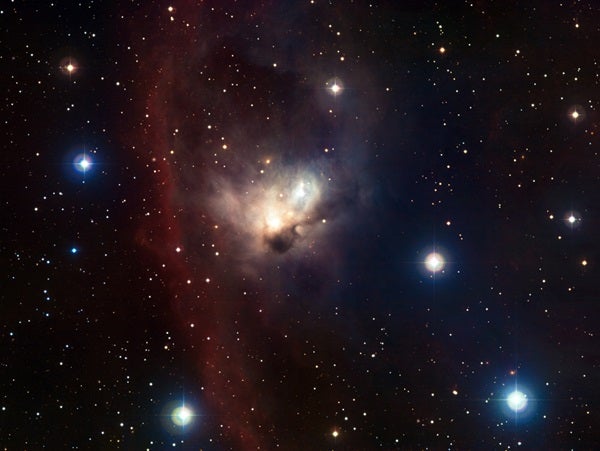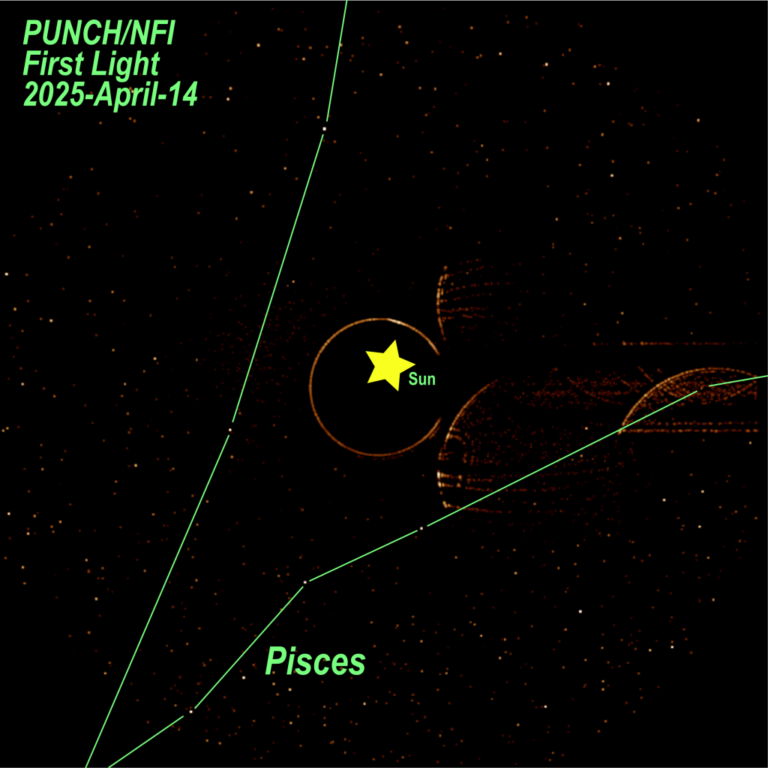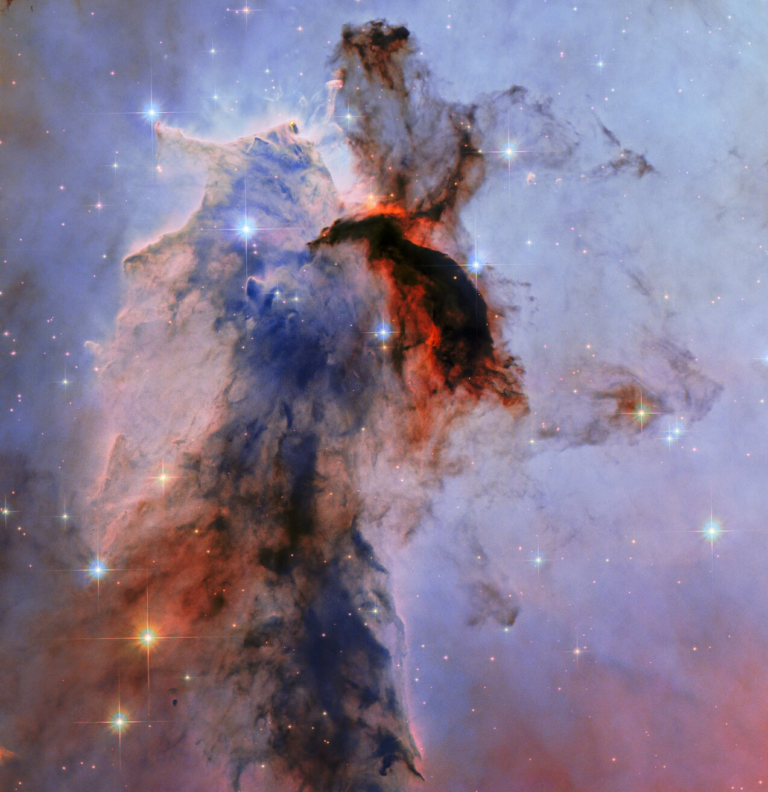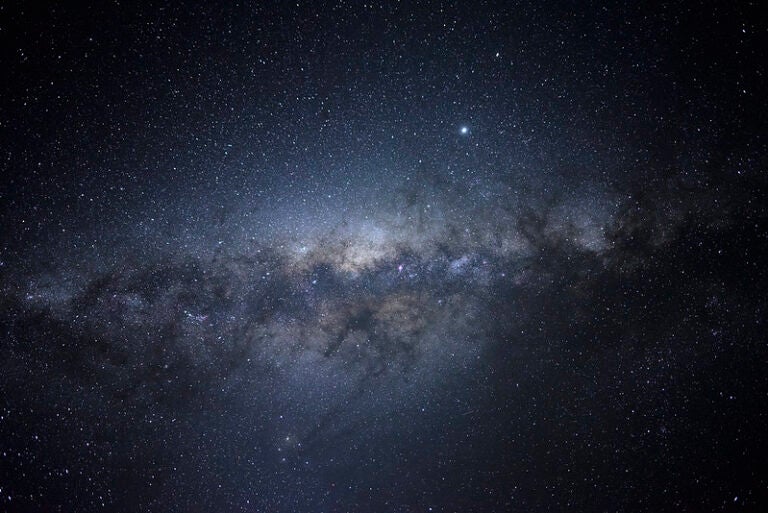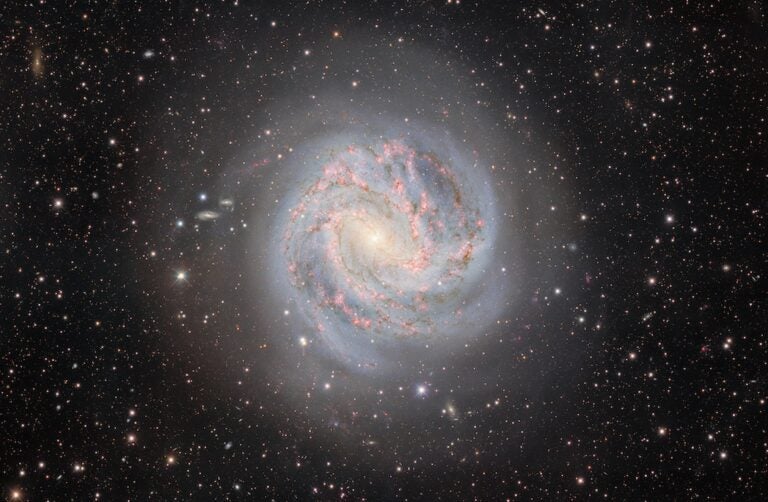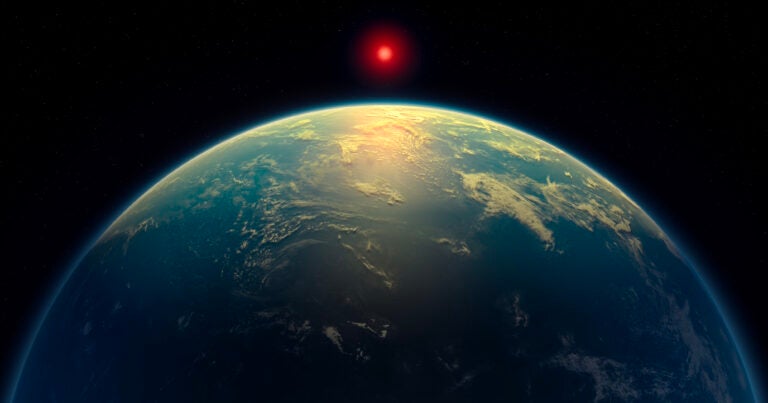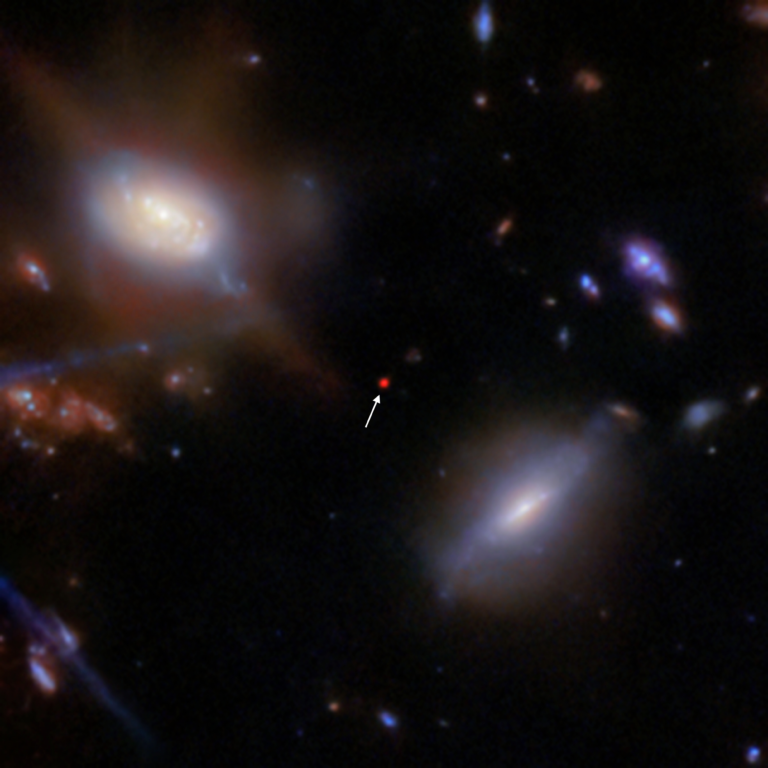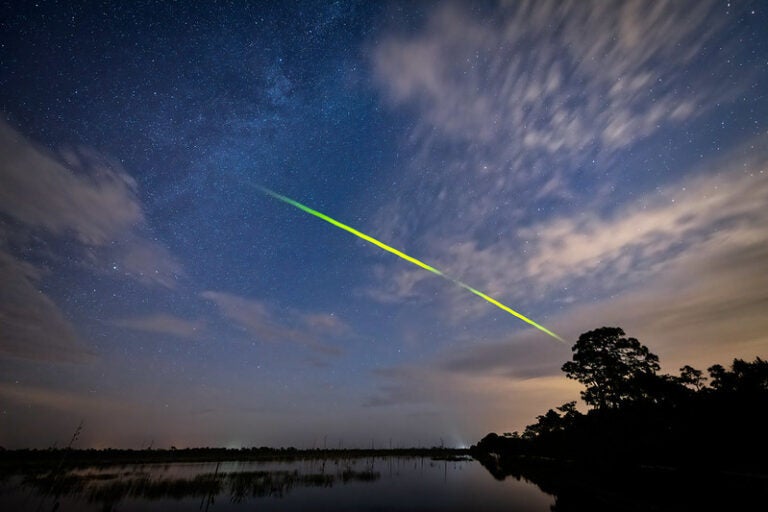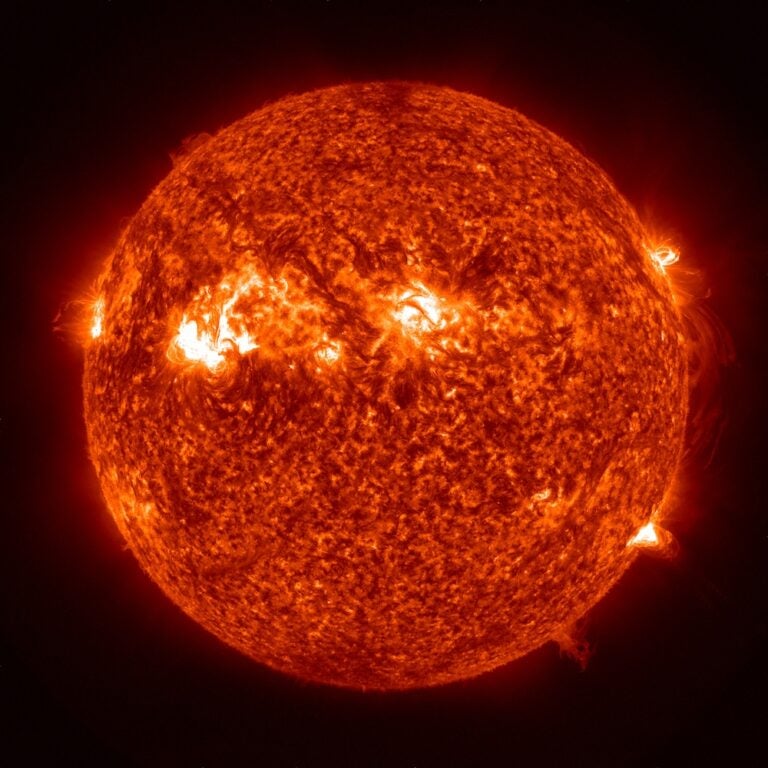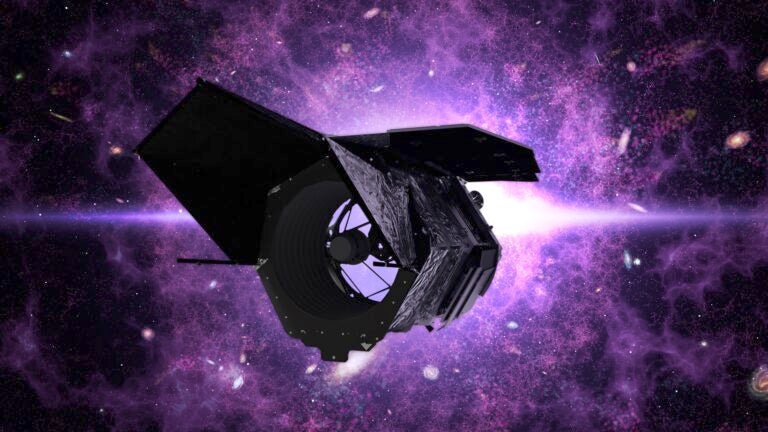The delicate nebula NGC 1788, located in a dark and often neglected corner of the Orion constellation, is revealed in a new and finely nuanced image that the European Southern Observatory (ESO) releases today. Although this ghostly cloud is rather isolated from Orion’s bright stars, the latter’s powerful winds and light have had a strong impact on the nebula, forging its shape and making it home to a multitude of infant suns.
Stargazers all over the world are familiar with the distinctive profile of the constellation Orion the Hunter. Fewer know about the nebula NGC 1788, a subtle, hidden treasure just a few degrees away from the bright stars in Orion’s belt.
NGC 1788 is a reflection nebula whose gas and dust scatter the light coming from a small cluster of young stars in such a way that the tenuous glow forms a shape reminiscent of a gigantic bat spreading its wings. Very few stars belonging to the nebula are visible in this image as most of them are obscured by the dusty cocoons surrounding them. The most prominent, named HD 293815, can be distinguished as the bright star in the upper part of the cloud, just above the center of the image and the pronounced dark lane of dust extending through the nebula.
Although NGC 1788 appears at first glance to be an isolated cloud, observations covering a field beyond the one presented in this image have revealed that bright, massive stars belonging to the vast stellar groupings in Orion have played a decisive role in shaping NGC 1788 and stimulating the formation of its stars. They are also responsible for setting the hydrogen gas ablaze in the parts of the nebula facing Orion, leading to the red, almost vertical rim visible in the left half of the image.
The stars in this region are extremely young, with an average age of only a million years, a blink of an eye compared to the Sun’s age of 4.5 billion years. Analyzing them in detail, astronomers have discovered that these “preschool” stars fall naturally into three well separated classes: the slightly older ones, located on the left side of the red rim, the fairly young ones, to its right, making up the small cluster enclosed in the nebula and illuminating it, and eventually the very youngest stars, still deeply embedded in their nascent dusty cocoons, further to the right. Although none of the latter are visible in this image because of the obscuring dust, dozens of them have been revealed through observations in the infrared and millimeter wavelengths of light.
This fine distribution of stars, with the older ones closer to Orion and the younger ones concentrated on the opposite side, suggests that a wave of star formation, generated around the hot and massive stars in Orion, propagated throughout NGC 1788 and beyond.

